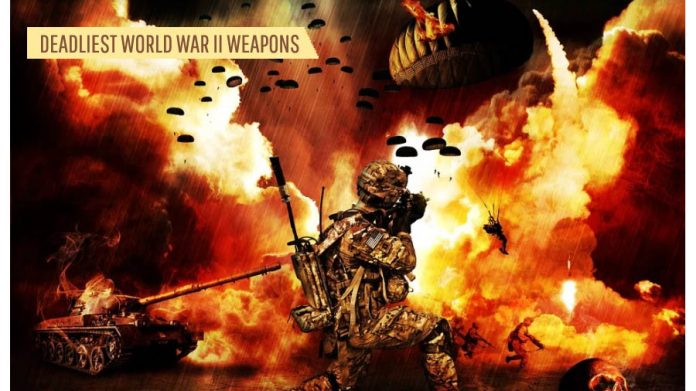World War II is regarded as the most prevalent and frightening war in human history. About 100 million people were personally or indirectly involved from over 30 countries, and over 60 million were victims of this war. The futuristic weapons used were one of the main causes of such mass destruction. In the Second World War, science, technology, communication, and medicine became the main subject of attention.
In that most brutal battle, the Allies finally gained success, ending with the defeat of the Nazis and the destruction of the empires of Japan and Italy. The United States, Germany, Great Britain, Japan, USSR, and other countries have produced hundreds of huge arms. Among them, the nuclear bomb may have been the most well-known device, with consequences lasting decades after the war’s conclusion.
Here is a record of the ten most destructive weapons of World War II:
10. Messerschmitt Me 262
| Role: | Fighter aircraft and fighter-bomber |
| Manufacturer: | Messerschmitt |
| Place of Origin | Germany |
| No. Built: | 1430 |
The Messerschmitt Me 262 was the first fighter jet aircraft in the world. The German attempt was made in 1945 to rotate combat. It was renamed Schwalbe, German in fighter versions for “swallow” and German in higher versions as Sturmvogel for “rain owl.” The Me 262 was heavier armored, overcoming the British Gloom Meteor than any other Allied fighter.
Although the fighter’s development began before World War II, there were several political and logistical issues. During their production of 1400 Me 262, only 300 were used in fighting. The fighter could have been a game-changer for the Germans given the necessary support and time, but it persists as one of the many “what ifs” of the Second World War.
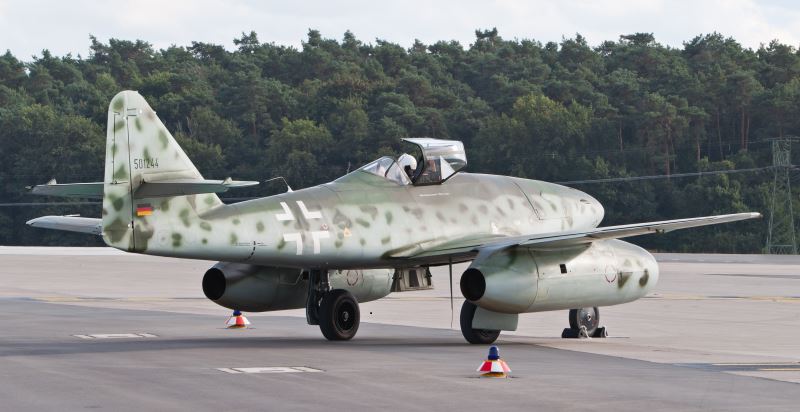
9. The 88mm Gun
| Role: | Anti-aircraft gun |
| Manufacturer: | Nazi Germany |
| Place of Origin | Krupp, Rheinmetall |
| No. Built: | 21,310 |
The widely called 88 or 8-eight Flak 18/36/37/41 was an 88mm airplane and antimicrobial artillery gun used by the Germans during the Second World War. It was one of Germany’s most fearsome pieces of artillery used from North Africa in Russia. The 88 was first positioned as a defensive tool for the aircraft.
The 88 cost the British some 90 tanks and almost 1,000 people during Operation Battleax, increasing the morale of the German army. The early 88mm guns had a length of 56 calibers, which means that the length of the muzzle was 56fold. The basic weapon could fit a 17-pound grenade that would raise to 1,500 or more shields and damage in a distance of around 200 meters.
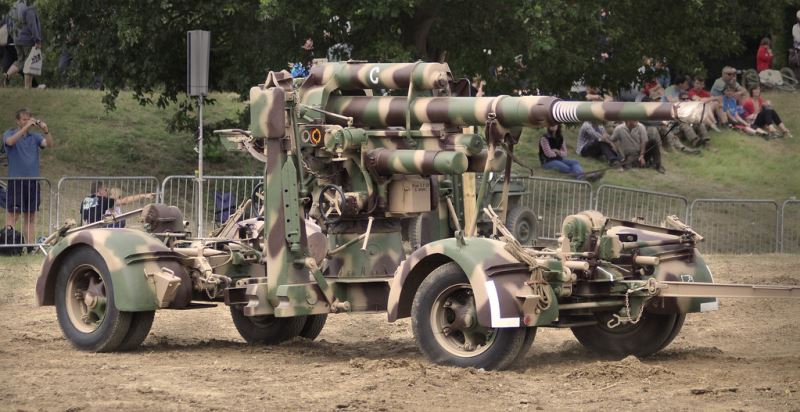
8. The Mk 2 Grenade
| Role: | Time-fused grenade |
| Manufacturer: | United States |
| Place of Origin | Day & Zimmermann |
| No. Built: | N/A |
The Mk 2 Grenade was produced by the United States and was the default hand grenade for the U.S. military from 1918 to the 1960s. During World War II, it was used. The original Mk 2 had a 3/8inch thread plus its base that protected the explosives opening.
Mk 2 grenades were full of smokeless E.C. powder, high explosive, which caused sufficient fragmentation and did not need a detonator. TNT flaked, or granular used in the Mk 2, Mk 2, M5, M6, and M10 have been fused with the early models. These fuses gave a loud bang when they were triggered and created sparks.
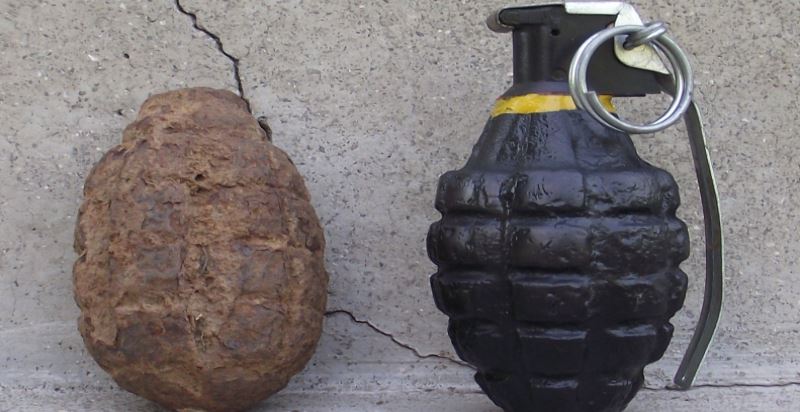
7. Avro Lancaster Bomber
| Role: | Heavy bomber |
| Manufacturer: | United Kingdom |
| Place of Origin | Avro |
| No. Built: | 7377 |
The Avro Lancaster was a British heavy bomber with four engines. The Air Force aircraft are manufactured by Avro (RAF). During the Second World War, it shifted the leading British heavy bomber. In January 1941, the Lancaster prototype was first flown. The Avro Lancaster was born from the Avro Manchester bomber’s previously abandoned version. The aircraft was used for many German bomb attacks, including the so-called Cologne “1000 bomber raid.”
In 1943, the mission codenamed Operation Chastise, the destruction of the dams in the Ruhr valley, created a famous Lancaster bombing raid.
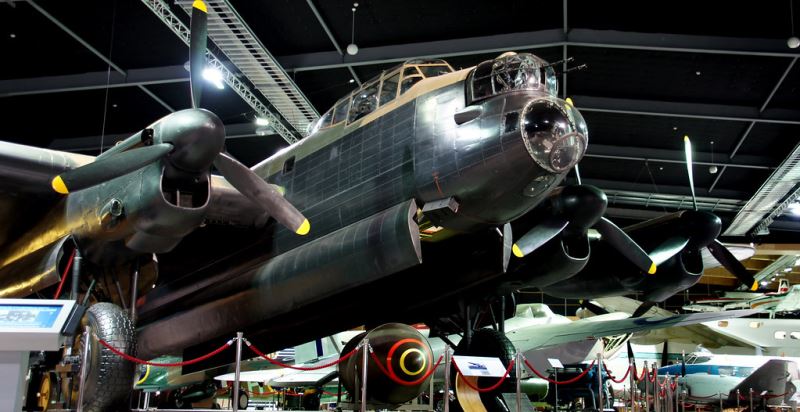
6. The M1 Garand Rifle
| Role: | Semi-automatic rifle |
| Manufacturer: | United States |
| Place of Origin | Springfield Armory, Winchester |
| No. Built: | 5,468,772 |
The M1 Garand Rifle is a semi-automatic 0.30-caliber rifle used in the Second World War and Korean War by the United States as a standard rifle. Drill and military honors are still in use at Garand. It was the first semi-automatic combat rifle in its normal form in its day.
In reality, the U.S. was the only nation to outfit its troops during the war with an automobile loading rifle. Both branches of the U.S. military used them. After the Japanese assault on Pearl Harbor in December 1941, the M1 rifle received priority.
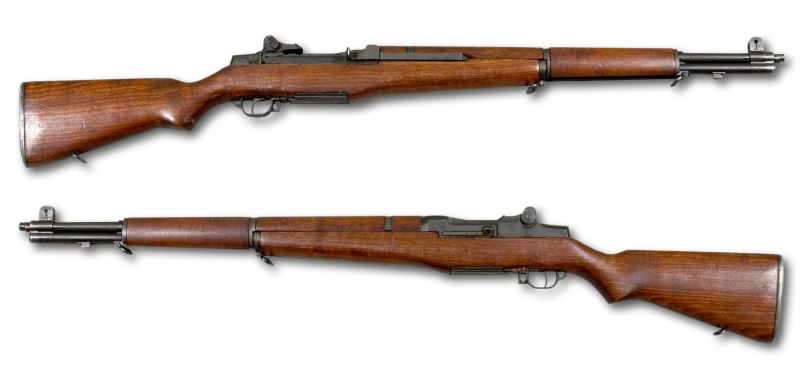
5. The T-34 Tank
| Role: | Medium tank |
| Manufacturer: | Soviet Union |
| Place of Origin | Kharkiv Morozov Machine-Building Design Bureau |
| No. Built: | 35,120 |
The tank T-34 was used during the Second World War by a Soviet medium tank. Their effects were strong and durable on the construction of tanks, while their arms and love were exceeded later in the battle. During the first stage of the T-34, firepower, agility, defense and roughness combined unprecedentedly.
The T-34 had a potent 76.2 mm high-speed tank gun that increased firepower considerably. It has been difficult to penetrate the thick, inclined armor of today’s anti-tank guns. In 1944, the second-largest T-34 variant was used to compete with newer German tanks, the T-34-85 having a bigger 85mm firearm.
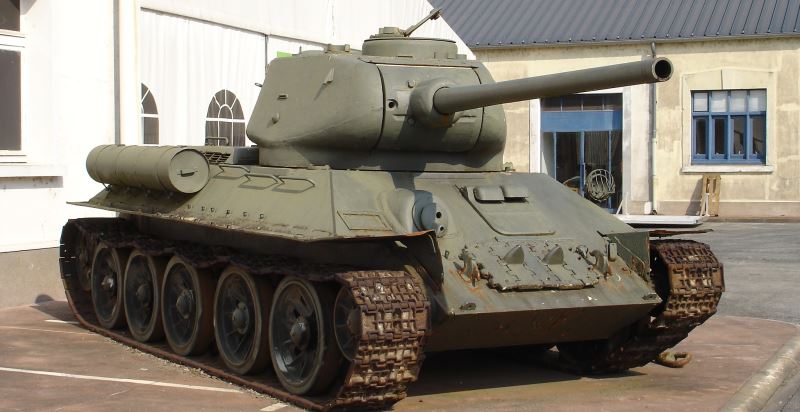
4. The M.G. 42
| Role: | General-purpose machine gun |
| Manufacturer: | Nazi Germany |
| Place of Origin | Mauser Werke AG, Wilhelm-Gustloff-Stiftung |
| No. Built: | 423600 |
A 7.92 per 57 mm Mauser general-purpose gun was created by Nazi Germany as a Maschinengewehr 42 or M.G. 42. The variant M.G. 42 of the earlier M.G. 34 has been simplified. The M.G. 42 was 1,000 meters in range and 50 rounds in capacity.
In the second half of the Second World War, it was widely used by the Wehrmacht and the Waffen-SS. They were deployed in Europe, causing thousands of Allied casualties. They were used all over Europe. At the end of the war, there were about 408,323 MG 42 produced at that time.
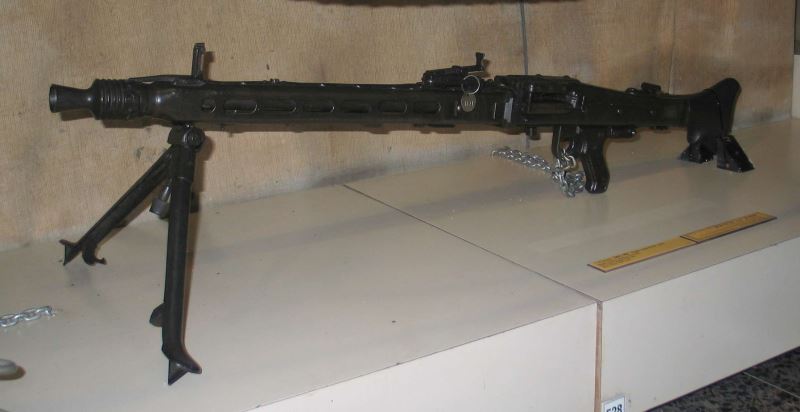
3. Katyusha Rocket Launcher
| Role: | Multiple rocket launcher |
| Manufacturer: | Soviet Union |
| Place of Origin | Plant Comintern in Voronezh |
| No. Built: | 100,000 |
The Soviet Union constructed the Katyusha Rocket launcher during the Second World War. It was rocket artillery with several rocket lancers mounted to the car’s rear to provide mobility. During the war, they were used, and they were well known for their strong punch. They were for a fraction of the artillery gun prices, and in a matter of seconds, they could smash enemy troops.
The rockets were 8.5 km in length with an impact of more than 10 m explosive fragmentation radius. The launchers were less precise than artillery guns but efficient during a penetration bombardment that German troops most dreaded. By the termination of the war, more than 10 thousand Katyusha launchers and 12 million rockets were manufactured.
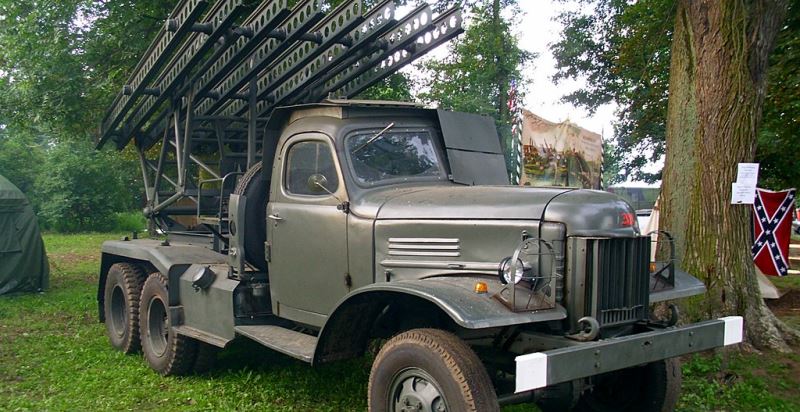
2. Hawker Hurricane
| Role: | Fighter aircraft |
| Manufacturer: | United Kingdom |
| Place of Origin | Hawker Aircraft |
| No. Built: | 14487 |
The Hawker Hurricane was the United Kingdom-built single-seater fighter plane for RAF by Hawker Air. It was one of World War II’s largest fighter planes. The top speed of this plane was 340mph, and the maximum length was 468 miles with a 35 000-feet ceiling. Eight 0.303 machine guns were part of armaments in the Hurricane.
Including the later version called the Sea Hurricane, over 14,583 hurricanes were built. Over 60% of the successes of the RAF over the Battle of Britain took place in the Hawkers, and Hitler’s progress in Europe was stopped.
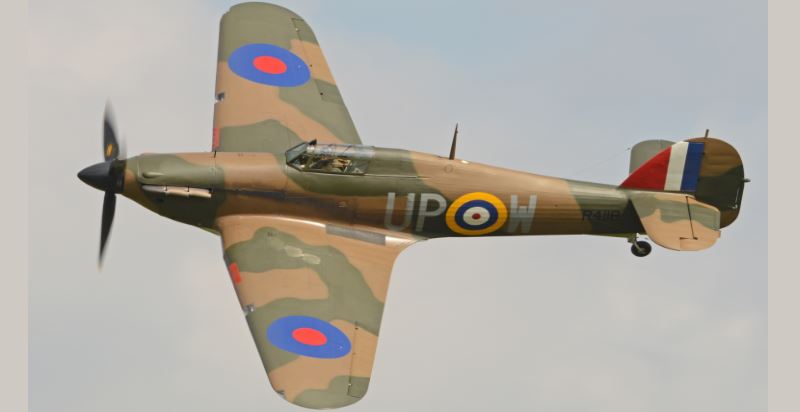
1. Atom Bomb
| Role: | Nuclear weapon |
| Manufacturer: | United States |
| Place of Origin | Los Alamos Laboratory |
| No. Built: | 120 |
The atom bomb is conceivably the most well-remembered armament from the Second World War, whose effects served several decades after its use and the end of the war. On August 6, 1945, “Little Boy,” the code word for the first atom bomb dropped over Japan, was detonated over Hiroshima. Three days later, the second atomic bomb, code word “Fat Man,” was detonated over Nagasaki on August 9, 1945, which was even more influential than the first bomb, blasting with an energy of 21 kilotons of TNT.
The explosion in Hiroshima killed over sixty-six thousand civilians. Twenty thousand of those killed belonged to the imperial army. The estimated number of deaths, including after radiation symptoms, reached over 192,000. In Nagasaki immediately, over 70,000 people were killed.
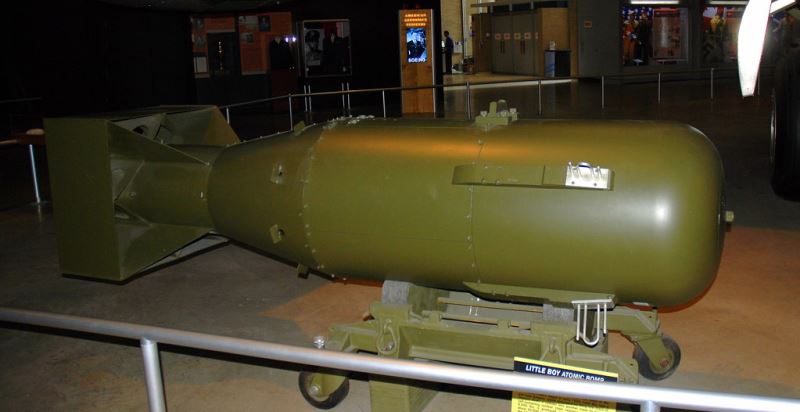
Conclusion!
In the deadly years of the Second World War, more than 60 million civilians were murdered as it was the worst and most destructive war ever. In 1940, the number of deaths in the world was around 3 percent. The Planet opened itself to nuclear war with the detonation of the first nuclear bomb during the fighting, and since then, there has been controversy.
